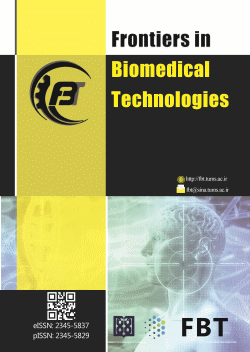AI in Nuclear Medical Applications: Challenges and Opportunities
Abstract
Over the last decade, there has been a notable and rapid advancement in artificial intelligence (AI), reflecting substantial progress in sophistication and problem-solving capabilities. This evolution has extended across various sectors, encompassing manufacturing, transportation, finance, education, and healthcare. Particularly noteworthy is AI's potential to drive progress in nuclear applications, science, and technology, raising ethical and legal considerations.
This academic paper, titled "AI in Nuclear Medical Applications: Challenges and Opportunities," undertakes a thorough exploration of the intricate relationship between AI and nuclear technology. Moving beyond a simple acknowledgment of AI's current capabilities, the paper delves into the nuanced landscape of challenges and opportunities within the realm of nuclear medical applications. It meticulously examines the ethical and legal dimensions inherent in this symbiotic relationship, emphasizing responsible and accountable utilization of AI in the nuclear domain.
The research focal point is the strategic deployment of AI capabilities in nuclear medicine, highlighting potential positive contributions to address contemporary challenges. From optimizing medical imaging methodologies to facilitating disease theranostics, the paper critically evaluates the transformative impact of AI on nuclear medical applications. By elucidating specific areas where AI has already demonstrated improvements, the research aims to provide a comprehensive understanding of the current landscape. Keywords include Artificial Intelligence, Radiomics, Radiotherapy, Medical Imaging, Radiopharmacy, and Disease Theranostics.
2- Konstantinos Papachristou et al., "Artificial intelligence in Nuclear Medicine Physics and Imaging." Hellenic Journal of Nuclear Medicine, Vol. 26 (No. 1), pp. 57-65, (2023).
3- Burak Kocak, Bettina Baessler, Renato Cuocolo, Nathaniel Mercaldo, and Daniel Pinto dos Santos, "Trends and statistics of artificial intelligence and radiomics research in Radiology, Nuclear Medicine, and Medical Imaging: bibliometric analysis." European Radiology, pp. 1-14, (2023).
4- Rajamanickam Baskar, Jiawen Dai, Nei Wenlong, Richard Yeo, and Kheng-Wei Yeoh, "Biological response of cancer cells to radiation treatment." Frontiers in molecular biosciences, Vol. 1p. 24, (2014).
5- Giulio Francolini et al., "Artificial Intelligence in radiotherapy: state of the art and future directions." Medical Oncology, Vol. 37pp. 1-9, (2020).
6- Hossein Arabi and Habib Zaidi, "Applications of artificial intelligence and deep learning in molecular imaging and radiotherapy." European Journal of Hybrid Imaging, Vol. 4 (No. 1), p. 17, (2020).
7- Dimitris Visvikis et al., "Application of artificial intelligence in nuclear medicine and molecular imaging: a review of current status and future perspectives for clinical translation." European journal of nuclear medicine and molecular imaging, Vol. 49 (No. 13), pp. 4452-63, (2022).
8- Ioannis D Apostolopoulos, Nikolaos I Papandrianos, Anna Feleki, Serafeim Moustakidis, and Elpiniki I Papageorgiou, "Deep learning-enhanced nuclear medicine SPECT imaging applied to cardiac studies." EJNMMI physics, Vol. 10 (No. 1), p. 6, (2023).
9- Robert Seifert, Manuel Weber, Emre Kocakavuk, Christoph Rischpler, and David Kersting, "Artificial intelligence and machine learning in nuclear medicine: future perspectives." in Seminars in nuclear medicine, (2021), Vol. 51 (No. 2): Elsevier, pp. 170-77.
10- Julia Brosch-Lenz et al., "Role of artificial intelligence in theranostics: toward routine personalized radiopharmaceutical therapies." PET clinics, Vol. 16 (No. 4), pp. 627-41, (2021).
11- Shivang Dhoundiyal et al., "Radiopharmaceuticals: navigating the frontier of precision medicine and therapeutic innovation." European Journal of Medical Research, Vol. 29 (No. 1), p. 26, (2024).
12- Elmira Yazdani, Parham Geramifar, Najme Karamzade-Ziarati, Mahdi Sadeghi, Payam Amini, and Arman Rahmim, "Radiomics and Artificial Intelligence in Radiotheranostics: a review of applications for Radioligands Targeting somatostatin receptors and prostate-specific membrane antigens." Diagnostics, Vol. 14 (No. 2), p. 181, (2024).
13- M Sproull, E Wilson, RW Miller, and K Camphausen, "The Future of Radioactive Medicine." Radiation Research, Vol. 200 (No. 1), pp. 80-91, (2023).
| Files | ||
| Issue | Vol 11 No 2 (2024) | |
| Section | Editorial | |
| DOI | https://doi.org/10.18502/fbt.v11i2.15330 | |
| Keywords | ||
| Artificial Intelligence Radiomics Radiotherapy Medical Imaging Radiopharmacy Disease Theranostics | ||
| Rights and permissions | |

|
This work is licensed under a Creative Commons Attribution-NonCommercial 4.0 International License. |




